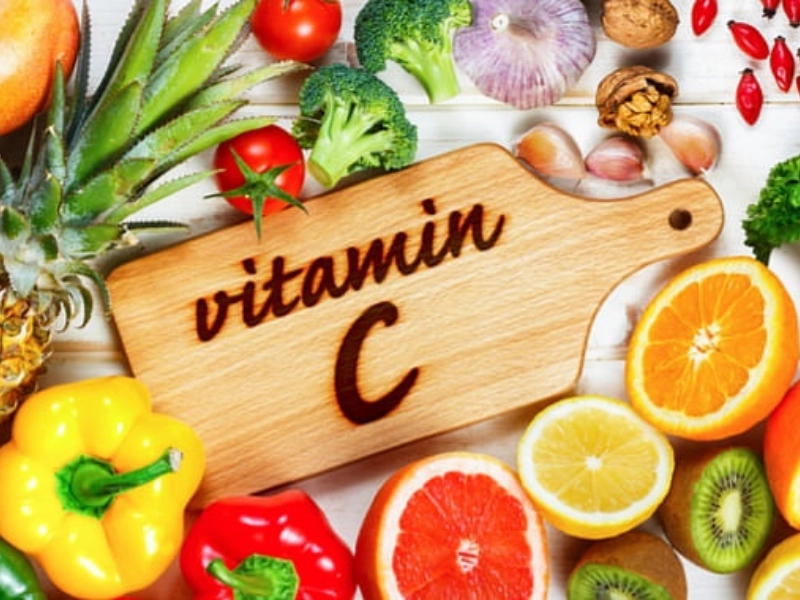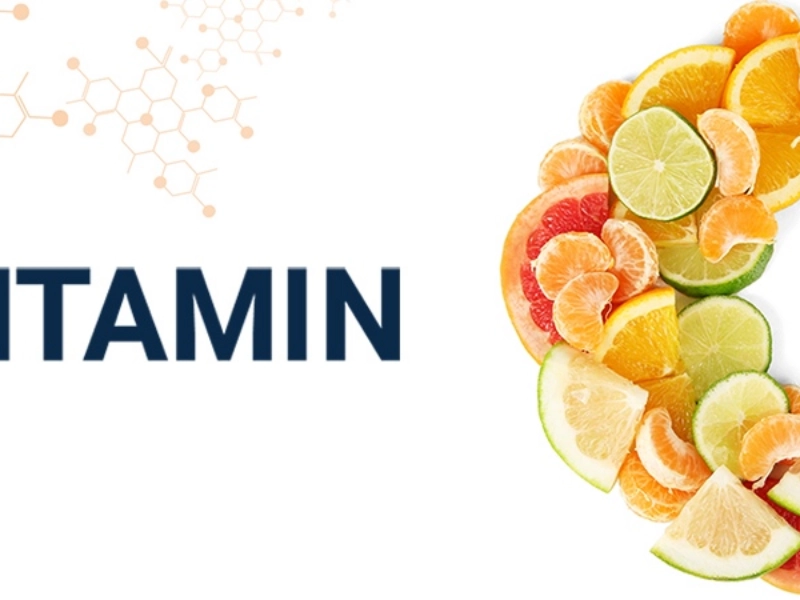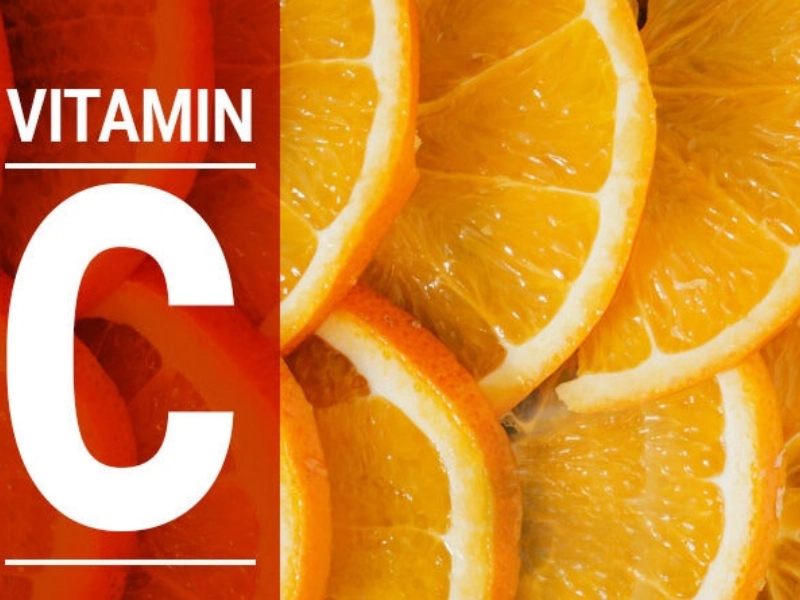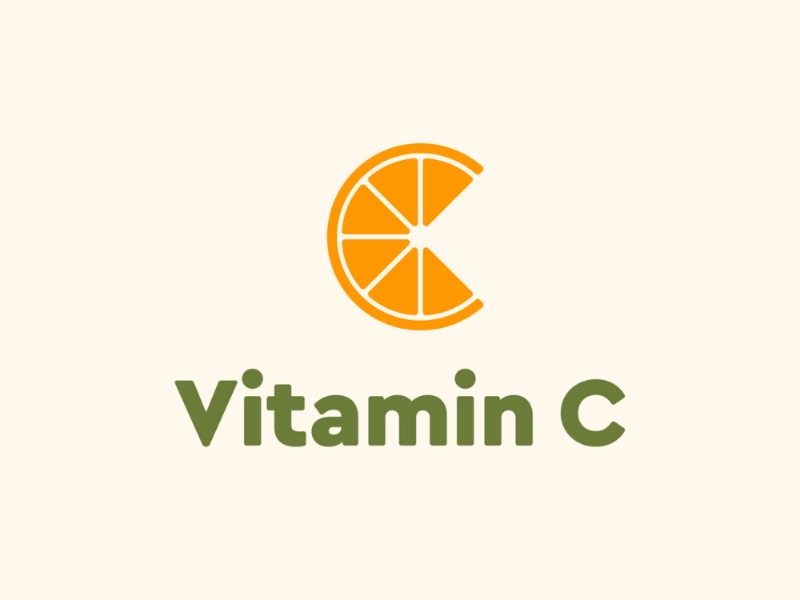1. Value of Bone Health

 Collagen, a protein building the backbone of bone structure, is synthesized from vitamin C. Bones depend on collagen since it gives them strength and flexibility. Its integrity is therefore essential. The body tries to generate enough collagen without enough vitamin C, which might result in weaker bones and more chance of fractures. Maintaining appropriate bone density thus depends on ensuring a sufficient consumption of vitamin C.
3. Vitamin C's Antioxidant Qualities
Collagen, a protein building the backbone of bone structure, is synthesized from vitamin C. Bones depend on collagen since it gives them strength and flexibility. Its integrity is therefore essential. The body tries to generate enough collagen without enough vitamin C, which might result in weaker bones and more chance of fractures. Maintaining appropriate bone density thus depends on ensuring a sufficient consumption of vitamin C.
3. Vitamin C's Antioxidant Qualities
 Apart from its part in the synthesis of collagen, vitamin C is a strong antioxidant. Antioxidants fight oxidative stress, which can compromise bone cells and cause bone loss. Vitamin C preserves bone tissue and advances a better skeletal system by neutralizing free radicals. Older persons notably benefit from this preventive impact since they can have more oxidative stress and a greater osteoporosis risk.
4. Bone mineralizing vitamin C
Apart from its part in the synthesis of collagen, vitamin C is a strong antioxidant. Antioxidants fight oxidative stress, which can compromise bone cells and cause bone loss. Vitamin C preserves bone tissue and advances a better skeletal system by neutralizing free radicals. Older persons notably benefit from this preventive impact since they can have more oxidative stress and a greater osteoporosis risk.
4. Bone mineralizing vitamin C
 Bone mineralization is the process by which minerals—mostly calcium and phosphate—are deposited in the bone matrix, therefore imparting strength and stiffness to the bones. Studies show that vitamin C improves the activity of osteoblasts, the cells in charge of producing bones, therefore facilitating this process. Vitamin C supports osteoblast function, therefore ensuring that bones remain strong and calcified.
5. Vitamin C: Dietary Sources
Bone mineralization is the process by which minerals—mostly calcium and phosphate—are deposited in the bone matrix, therefore imparting strength and stiffness to the bones. Studies show that vitamin C improves the activity of osteoblasts, the cells in charge of producing bones, therefore facilitating this process. Vitamin C supports osteoblast function, therefore ensuring that bones remain strong and calcified.
5. Vitamin C: Dietary Sources
 Including enough amounts of vitamin C in your diet will help you to enjoy its advantages for bone strength. With citrus fruits, strawberries, kiwi, bell peppers, and broccoli being rich choices, fruits and vegetables are the best sources of vitamin C. Including some of these foods in your meals can allow you to properly maintain your bone health and satisfy your daily vitamin C needs.
6. The Combining Power of Nutrients
Including enough amounts of vitamin C in your diet will help you to enjoy its advantages for bone strength. With citrus fruits, strawberries, kiwi, bell peppers, and broccoli being rich choices, fruits and vegetables are the best sources of vitamin C. Including some of these foods in your meals can allow you to properly maintain your bone health and satisfy your daily vitamin C needs.
6. The Combining Power of Nutrients
 Although bone health depends on vitamin C, it best functions in concert with other nutrients. Although magnesium, vitamin K, and phosphorus also help to keep strong bones, calcium and vitamin D are well-known for their involvement in bone health. A well-balanced diet including a range of nutrients will help to support ideal bone condition. To maximize calcium absorption and use, for example, combine foods high in vitamin C with sources of calcium, including dairy or leafy greens.
7. The Effect of Lifestyles:
Although bone health depends on vitamin C, it best functions in concert with other nutrients. Although magnesium, vitamin K, and phosphorus also help to keep strong bones, calcium and vitamin D are well-known for their involvement in bone health. A well-balanced diet including a range of nutrients will help to support ideal bone condition. To maximize calcium absorption and use, for example, combine foods high in vitamin C with sources of calcium, including dairy or leafy greens.
7. The Effect of Lifestyles:
 Apart from eating, lifestyle choices are also quite important for preserving bone condition. Bone density can be developed and maintained by consistent weight-bearing exercise, such as walking, jogging, or strength training. Furthermore crucial is avoiding smoking and too much drinking since these behaviors can compromise the condition of the bones. For the best use of vitamin C and other nutrients for stronger bones, combine a nutrient-dense diet with a healthy lifestyle.
8. Review of Vitamin C's Function in Bone Health
Apart from eating, lifestyle choices are also quite important for preserving bone condition. Bone density can be developed and maintained by consistent weight-bearing exercise, such as walking, jogging, or strength training. Furthermore crucial is avoiding smoking and too much drinking since these behaviors can compromise the condition of the bones. For the best use of vitamin C and other nutrients for stronger bones, combine a nutrient-dense diet with a healthy lifestyle.
8. Review of Vitamin C's Function in Bone Health
 Strong bones, collagen generation, antioxidant action, and maintenance of bone mineralization all depend on vitamin C, a basic nutrient. Although talks about bone health usually focus on calcium and vitamin D, the special advantages of vitamin C should not be underlined. Your general health and bone strength will improve if you keep a good lifestyle and include a range of foods high in vitamin C in your diet. Long-term well-being depends on embracing the whole range of nutrients required for the best bone health.
Strong bones, collagen generation, antioxidant action, and maintenance of bone mineralization all depend on vitamin C, a basic nutrient. Although talks about bone health usually focus on calcium and vitamin D, the special advantages of vitamin C should not be underlined. Your general health and bone strength will improve if you keep a good lifestyle and include a range of foods high in vitamin C in your diet. Long-term well-being depends on embracing the whole range of nutrients required for the best bone health.